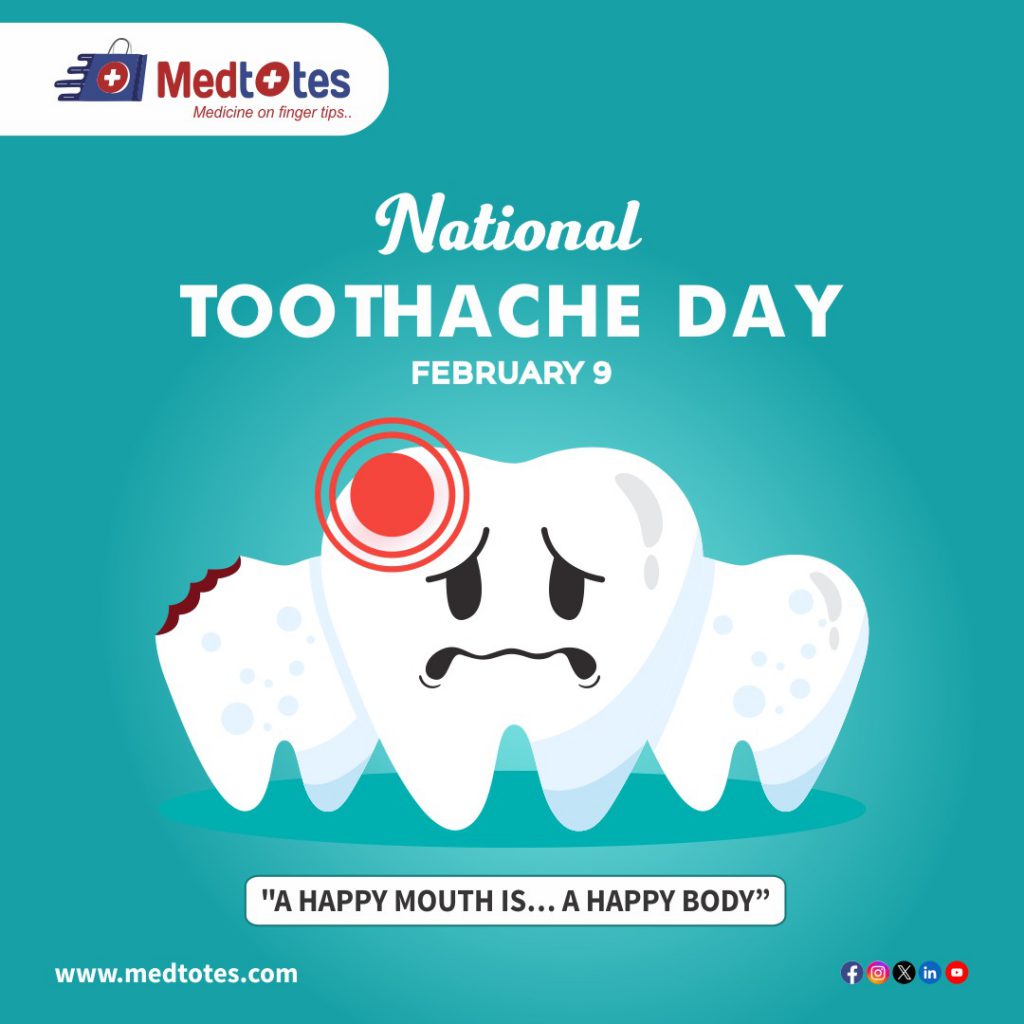I. Introduction
National Toothache Day is observed to raise awareness about the importance of oral hygiene and dental care. The day is celebrated on February 9th every year. Toothache is one of the most common dental problems, often caused by tooth decay or dental infection. Aims to educate people about the common causes of toothaches and promote preventive measures to maintain good dental health. It is crucial to learn about proper oral hygiene practices and regularly visit a dentist for check-ups. The purpose of this blog is to provide information and tips on how to prevent toothaches and maintain good dental health, ultimately improving overall well-being.

II. Causes and consequences of toothaches
The common causes of toothaches include tooth decay, gum disease, tooth fractures, and dental infections. Toothaches can lead to severe pain, difficulty eating or speaking, and can even result in tooth loss if left untreated. Toothaches can greatly impact a person’s quality of life and may require professional dental treatment to alleviate symptoms and prevent further complications. In severe cases, dental infections can even spread to other parts of the body and become life-threatening. It is important to seek prompt dental care to prevent further complications and ensure overall health and well-being.
The potential consequences of ignoring or not treating toothaches can include the spread of infection, which can lead to severe pain, swelling, and abscess formation. Additionally, untreated toothaches can result in the loss of the affected tooth or surrounding teeth. This may result in difficulty chewing, changes in speech, and a negative impact on overall oral health. Furthermore, untreated toothaches can also have a detrimental effect on one’s quality of life. Hence, it is important to treat the toothache promptly to prevent further complications.
III. Prevention and maintenance of dental health
Regular dental check-ups, proper oral hygiene practices, and a healthy diet can help prevent toothaches and maintain good dental health. Brushing and flossing daily, using fluoride toothpaste, and avoiding sugary foods and drinks can reduce the risk of tooth decay and gum disease. Taking proactive steps to prevent toothaches can save individuals from the pain, inconvenience, and potential complications associated with untreated dental problems.
- A balanced diet plays a crucial role in maintaining dental health as it provides essential nutrients for strong teeth and gums.
- Avoiding excessive sugar intake is important because sugar acts as fuel for harmful bacteria in the mouth, leading to tooth decay and cavities.
- Consuming a variety of fruits, vegetables, lean proteins, and whole grains can help strengthen teeth and gums while reducing the risk of dental problems.
IV. Treatment options
- Regular dental check-ups and cleanings can help identify and treat dental issues before they become severe.
- Dental fillings can be used to repair cavities and prevent further decay.
- Root canal therapy may be necessary to save a tooth that has been severely damaged or infected.
- Extraction may be needed for teeth that cannot be saved or are causing complications.
- Orthodontic treatment, such as braces or aligners, can correct misaligned teeth and improve overall dental health.
- In severe cases, oral surgery may be required to address issues such as impacted teeth or jaw misalignment.
V. Conclusion
In conclusion, Regular dental check-ups and cleanings are crucial for preventing and treating dental issues. Treatment options range from simple fillings to complex procedures like root canal therapy and extraction. Orthodontic treatment improves tooth alignment and overall health. In rare cases, oral surgery may be necessary for severe issues. Taking appropriate dental care ensures good oral health and prevents future complications.
Download our app: https://bit.ly/3tkQkFy
